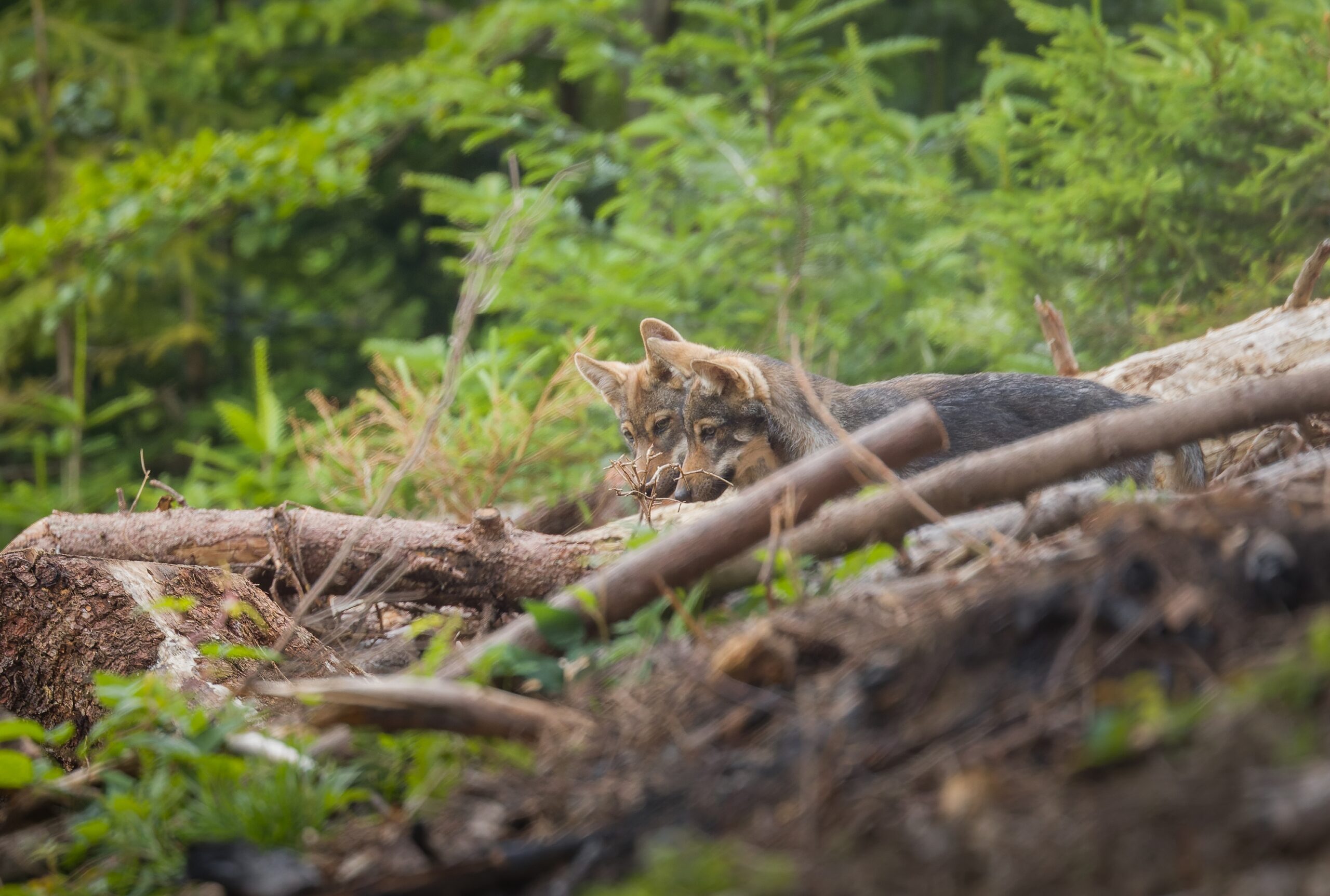The cross-border area of Beskydy (CZ) and Kysuce (SVK) mountains is one of the four regions where we pilot our project activities. Since cooperation is key to the LECA project, we invited representatives of hunters, foresters, farmers, livestock breeders, and nature conservationists to a gathering where we introduced the project activities, shared experiences, and invited them to take part in stakeholder platforms. We underlined how important cooperation among all of us is and how we want to support it also on the cross-border level.
Within a series of presentations, among others, we also introduced data we have collected from collared wolves living in the area. Telemetry, the types of data this method provides and the use of such data seemed to raise significant interest among almost fifty attending stakeholders.
In the context of the LECA aims, we found it important to present and discuss channels through which affected stakeholders could acquire compensation for damages large carnivores cause to their herds and other property. From what we heard from experts and stakeholders, the Czech compensation system, even though not perfect, functions well compared to some compensation mechanisms in other countries.
One of the goals of cooperation among stakeholders is, however, to prevent animal attacks on herds of livestock. Therefore, we dedicated significant attention to presenting and discussing measures that should prevent conflicts between large carnivores and farmers, shepherds, or livestock breeders. In this respect, we found it very beneficial to invite stakeholders representing different roles within the complex state subsidy system. On one hand, there were participants who apply for financial support and further implement preventive measures, and on the other, there also were stakeholders who evaluate individual applications. This allowed us to discuss farmers’ experiences and the inconsistencies they identify in the current approval system. The discussion allowed for a better insight into two different sides of the preventive measure realization mechanism and opened the door to a dialogue on how to improve the system.
Based on practical experience in the implementation and processing of preventive measures applications, we can say that there is a wide variety of existing preventive measures stakeholders can choose from. Which livestock breeders prefer in the end depends on many diverse factors. During our kick-off meeting, we got to listen to the different approaches the two breeders had applied. One of them was a big supporter of electric fences. He preferred having his herds protected by a well-working fence, which he found to be the most reliable method. On the contrary, in the other breeder’s experience, having well-trained and properly chosen shepherd dogs is the most effective preventive measure. So, we could see that the choice of preventive measures also depends, besides others, on stakeholder’s personalities, preferences, conditions, or areas in which they operate. For example, the farmer with guardian dogs lives in the “heart” of the wolf territory. Therefore, he decided to stay in close contact with his sheep and he cannot imagine breeding his herd without dogs around.
Another highlight was the presentation on ten years of cooperation between universities, NGOs, and volunteers in the pilot area. The data made it clear that cooperation with volunteers in monitoring is crucial. Thanks to the training they get, they bring in a lot of relevant data about the LC populations. This adds to data collected by people active in the non-governmental sector, creating thus a great dataset for further scientific analysis, usually conducted in cooperation with universities. Such multi-sectoral cooperation results in new knowledge, publications, and materials for public education. Importantly, volunteers also help with poaching investigations! As Friends of the Earth Czech Republic presented, their volunteers have helped report poaching activities that were later investigated by police.
We believe this meeting and sharing experiences will positively contribute to better understanding, cooperation, conservation, and management of large carnivores as well as to related societal challenges.
